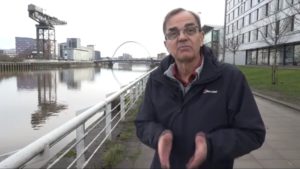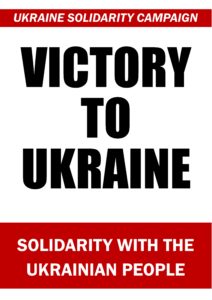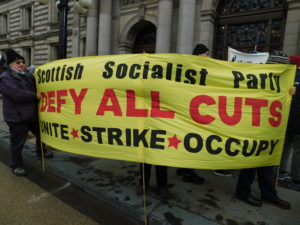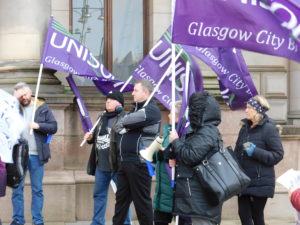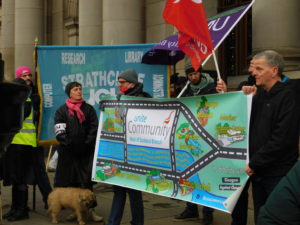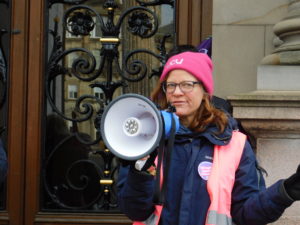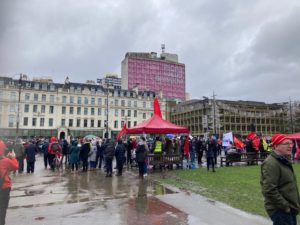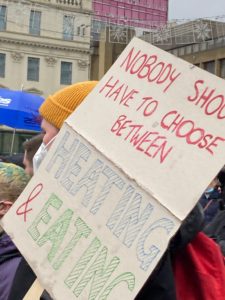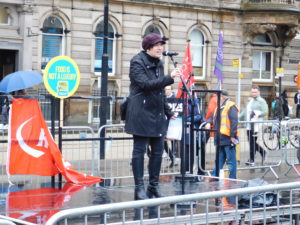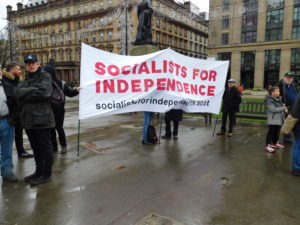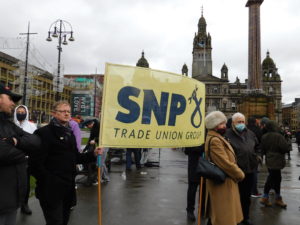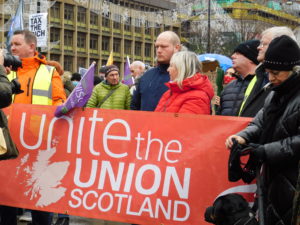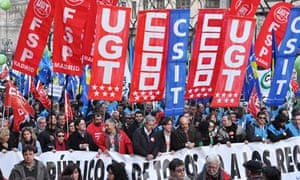For the past month or so, we have been witnessing a military escalation around Ukraine that constitutes a serious threat to Europe and the world, and which takes us back to the most serious crises at the height of the Cold War, such as the Korean War (1950-53), the Cuban missile crisis of 1962 or the deployment of the Euro-Missiles (and the Soviet SS20) in the early 1980s, when Ronald Reagan contemplated the possibility of resorting to tactical nuclear armaments on the European theatre.
The danger of the ongoing verbal and military spiral and the risk of sliding into armed conflict, whether low-intensity or far-reaching, localized or generalized, conventional or also including some form of nuclear threat, is greater than in the episodes already mentioned. While the Ukrainian people are the first to be affected, the threats concern all the actors involved in the verbal and bellicose spiral of the current crisis, in particular all the peoples of Europe.
We are therefore faced with a double challenge:
• to respond to the fears expressed in Ukraine regarding the Russian troops on its borders, allegedly aimed at preventing Ukraine’s integration into NATO;
• to take the measure of the real dangers produced by the escalation of warmongering declarations and behaviour whose stakes go beyond the Ukrainian question.
Our overall position on NATO is twofold: in the aftermath of the Second World War the Fourth International opposed NATO at its inception and, a fortiori, demanded that this military alliance should be disbanded in 1991 along with the Warsaw Pact. We also condemn Russia’s imperialist rhetoric and behaviour, which has led a growing section of the Ukrainian population to turn to NATO. The withdrawal of foreign forces (Atlantic and Russian) and the military neutrality of Ukraine are the only protection of its independence. But it is up to the Ukrainian people – and not to blackmail and negotiations between great powers – to decide on their membership or not of NATO.
The main factors that contribute to the danger of an unstable geo-political situation are
• Major energy issues (especially associated with the problems of the transition to renewable energy) with Russian power able to exploit the different energy situations (and dependencies) of the EU and the US – in the context of enormous economic volatility and the very real risk of a new financial crash; problems of scarcity and inflation, energy difficulties and major problems of the transition to renewable energy.
• A series of armed conflicts in the former Soviet Union, from Ukraine since 2014 to Georgia, Armenia and Azerbaijan, via Chechnya and a long process of rebuilding Russian military power and making up for the setbacks and humiliations suffered since the end of the Cold War – and a relative consolidation of Russia’s grip on Belarus and Kazakhstan encouraging Putin’s great power posturing;
• And, more specifically, the crisis of the political system and the internal instability of the United States – barely a year after the coup-style assault on Capitol Hill promoted with impunity by a Trump who sees himself returning to the White House very quickly – the European Union and, above all, Russia itself, after two years of widespread pandemic and revolts against authoritarianism, corruption and repression.
• The stalling of the “Normandy Format” (France, Germany, Russia, Ukraine) of conflict management in Ukraine after Russia’s occupation of Crimea since 2014.
Both Putin and Biden need to present a strong and aggressive image on the one hand to regain domestic credibility and legitimacy and on the other to discipline what they consider to be their respective areas of influence: Putin to recover from the biggest wave of anti-authoritarian protests since Perestroika, which Russia has been experiencing for several months, and the revolts against corruption, inequalities and post-Stalin paternalism in what he believes to be Russia’s area of influence (Belarus, Kazakhstan, etc…); Biden, who is on the verge of midterm congressional elections, after a humiliating withdrawal from Afghanistan and weighed down by a disappointing domestic policy that has brought him a level of unpopularity comparable to that of Trump in the last months of his presidency. Putin’s position inside Russia also depends directly on his foreign policy stance. His fourth presidential term ends in 2024, after which he will have to retain power (in the face of his declining popularity) or hand it over to his “successor”. This process of “transit of power” in a situation of complete degradation of all political institutions depends only on Putin’s own decision and his ability to rally the bureaucratic and financial elites around him in front of internal and external threats.
First threat of nuclear war in sixty years
The arrogance of their respective statements is proportional to their political weakness: “I hope Putin is aware that he is not far from a nuclear war”. “Putin wants to test the West and he will pay a price for it that will make him regret what he has done”, said Biden during a press conference on 20 January. But bellicose declarations of this type, even if they are the result of gesticulations and a game of lying poker, are never harmless and without the risk of uncontrolled spiralling.
The determining factor behind the massive concentration of its troops on Ukraine’s northern and eastern borders is Russia’s fear of a hypothetical Ukrainian entry into NATO, which would allow the deployment of hostile nuclear weapons next to its country.
30 years after the end of the USSR and the dissolution of the Warsaw Pact: between NATO enlargement and the reconstruction of Russian imperialism
When Mikhail Gorbachev decided to dismantle the Warsaw Pact 30 years ago, NATO leaders agreed to dissolve the Atlantic pact and pledged that the future reunified Germany would be a neutral country, as Austria had been since the end of World War II. As we know, not only did the reunified Germany join the Atlantic Alliance, but the Alliance has since expanded eastward, integrating most of the countries that for 45 years had belonged to the Soviet Bloc: in 1999 Poland, the Czech Republic and Hungary. In 2004 Bulgaria, Estonia, Latvia, Lithuania, Romania, Slovakia and Slovenia followed. Albania and Croatia in 2009, and in 2020 it was the turn of North Macedonia.
The maintenance and expansion of NATO, far from pacifying the continent’s relations, is actually straining them – and can only encourage a grand Russian expansionist logic to the detriment of the countries situated between the EU and the Moscow-dominated Eurasian Union.
Russia’s military mobilization along the Ukrainian border explains why Biden has announced that he is willing to negotiate that strategic weapons will not be deployed in Ukraine and that Ukraine’s NATO membership is not on the agenda. However, we cannot forget that, according to the FBI’s own reports, since the overthrow of the Yanukovich government in Ukraine, the Russian annexation of Crimea and the beginning of the secession in the Donbass, Ukraine has become a training ground for the international fascist movement, which has recruited anti-Russian fighters to be integrated into Ukrainian militias in much the same way as Islamic fundamentalism used the war in Afghanistan first (with the formation of Al Qaeda at the time by the CIA and Pakistani military intelligence), then the war in Bosnia and, more recently, in Iraq and Syria (the origin of Daesh terrorism). But the so called “People’s Republic of Donetz” is also recruiting fascist and ultranationalist Slav forces.
Logically, despite the Russian escalation and the mobilization of NATO troops and US armaments stationed in the Baltic republics, there is fortunately room for negotiation, but it will be difficult to reach a flexible solution when both sides have made the situation very tense and are starting from positions of political weakness and internal institutional instability.
From military follies to economic follies: on the “sanctions” threatened by Biden
Despite Biden’s and NATO’s aggressiveness, European powers are divided over what to do. While some countries such as France and Germany are very reluctant to engage in military deterrence, the subservient attitude of the “progressive” Spanish government is particularly pathetic. Logically, Germany is a key country in this scenario, as its economic vulnerability and energy dependence on Russia is enormous. Biden threatens never-before-seen sanctions, such as expelling Russia from the global SWIFT payments system or cutting the Nord Stream 2 pipeline, to which Putin responds by saying that this would mean the “complete severance of relations” with the US. If Russia, which has been deliberately raising the price of its gas exports to Europe as a geopolitical pressure measure for months, were to decide either to further escalate the price or to cut off supplies directly, we are talking about a drastic reduction in industrial activity and the supply of electricity and heating to much of Central Europe with its consequent socio-economic impact, which would undoubtedly be dramatic. On the other hand, if Russia were to be expelled from the SWIFT system, the $56 billion in Western financial assets and 310 billion euros placed in Russian companies would most likely be severely jeopardized by an immediate targeting of the Russian response (in fact, even some Western officials also state that this is not realistic). There is no doubt that an energy, financial and trade war of this calibre would be lethal for a global economy dragging with it two years of pandemic and all the accumulated destabilizing effects of forty years of long wave of recession, financialization and neoliberal deregulation and, last but not least, it would favour further geo-economic and geopolitical rapprochement between Russia and China, the biggest nightmare imaginable for Washington strategists.
Uncertainties of the situation
US and British authorities are ordering their citizens to leave Ukraine, citing the danger of a Russian invasion of the country. These actions help to create a war psychosis and further strain the situation. However, Germany has vetoed the delivery of former GDR (East Germany) arms to Ukraine that some Baltic republics were seeking. British military flights carrying arms to Ukraine these days avoid flying over German territory. Paradoxically, the few sensible comments on the current situation come not from politicians or journalists, but from some military personnel: “The media are adding fuel to the fire of a conflict, I have the impression that nobody realizes what a war really means,” says General Harald Kujat, a former Bundeswehr inspector general. “It can’t be that we only talk about war instead of how to prevent war”.
The Russian political situation and Putin’s intentions
Russia, with a military budget equivalent to 3% of world military spending (let us not forget that we are talking about the world’s second largest conventional army, land forces on a par with those of the US and a nuclear arsenal almost equivalent to that of the US), is playing a very dangerous destabilizing game in a context of strategic division and internal crisis in NATO, which could provoke a very aggressive reaction from that military alliance. Contrary to the claims of the Cold War nostalgic left-wing campists who confuse Putin’s neo-Tsarist, oligarchic and nationalist policies – which have contributed to crushing genuine rebellions and popular revolutions in Syria, Belarus and Kazakhstan and to muzzle, repress and intimidate the democratic opposition and popular forces in the Russian Federation – with the revolutionary, proletarian and internationalist policies of Lenin, Russia’s foreign policy is undoubtedly reactionary.
Nowadays Russian society suffers massive poverty and inequality (even higher than the US). In fact, the “new architecture of the world” that Russia advocates is the old-style imperialism of the early 20th century, where the world is divided into “spheres of interests” of big powers and small countries are denied any right to control their own destiny. Russia’s main claim to America from this perspective is that it has built a “one sovereign” world (in Putin’s famous phrase) and is unwilling to share it with the rest of the global players.
However, for most of the Western media Putin and the “fearsome” Lavrov are the only villains in the film. But the truth is that, in the words of someone as unsuspicious of Bolshevik radicalism as Oskar Lafontaine, “there are many gangs of murderers in the world, but if we count the deaths they cause, Washington’s criminal gang is the worst”. What the Russian people needs is détente, a chance to develop a democratic and popular opposition capable of fracturing the fragile alliance between post-Stalinist bureaucracy and mafia oligarchy that forms the basis of the authoritarian regime embodied by Putin, of defusing the nationalist hysteria that binds this reactionary bloc together, and of relaunching the demands of youth, women and the toiling classes in an internationalist key.
What can we expect?
That Russia is going to “invade Ukraine”, occupying the whole country, is completely out of the question. In the streets of Budapest, traces of the Soviet occupation of 1956 can still be seen today. What happened then in Hungary would be child’s play compared to what would happen in Ukraine today.
What is much more likely is that Putin will install “tactical” nuclear missiles in Belarus, Kaliningrad and other nearby territories. Nor can the possibility of an annexation of the Donbass be excluded. The current rising oil and gas prices, and the expectation that they will continue to rise, could allow the Kremlin to cover the economic costs of such operations. And, although less likely and much riskier – and certainly much bloodier – a Russian military operation to seize the area south of Donbass (Mariupol) in order to organize a security belt in a south-westerly direction and connect two rebel areas with the Crimean peninsula cannot be ruled out either.
The tasks of revolutionary, pacifist and democratic forces in Europe and the world
The current developments are serious and extremely dangerous for peace in Europe. As we know, in situations of maximum tension no actor has absolute control over events and any accident can trigger uncontrollable situations. An international mobilization is urgently needed to lay the foundations for a global anti-militarist and anti-nuclear offensive. Tensions in the Asia-Pacific area are also linked to the ongoing escalation in Ukraine and imperialist temptations in times of economic, social and institutional crisis of the great powers are particularly dangerous. For all these reasons, we call on political, social, associative, national, regional and international organizations to seek major international mobilization occasions to link up again with the internationalist and solidarity impulse of the left.
Let’s organize the mobilization for de-escalation, peace, the dissolution of the blocs and the self-determination of the peoples!
Executive Bureau of the Fourth International
30 January 2022
Republished from International Viewpoint https://internationalviewpoint.org/spip.php?article7503

